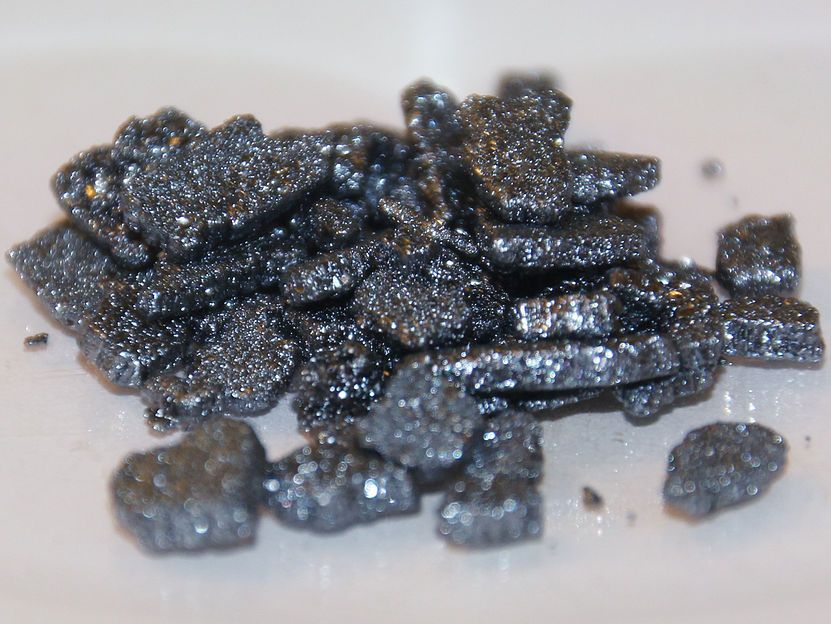
Dr. Maxwell Nartey
Professor of Symptometric Science, American School of Symptometry, NFP
World Center for Health Education and Scientific Enlightenment
Iodine is the mineral the thyroid gland uses to produce the iodides that facilitate the production of thyroid hormones T3 and T4. The pituitary gland also uses iodine to produce TSH (thyroid stimulating hormone).
Why can’t the thyroid gland and the pituitary gland of certain individuals have iodine to produce specific hormones? A whole lot depends on 1) the salt the person has been cooking with and 2) the habit of avoiding salt because physicians recommend avoiding salt to prevent or control hypertension.
First, it is a big mistake to avoid cooking with iodized salt or eating salt that was added to food on the fire. It is not eating salt that causes hypertension. Physicians got it all wrong.
It is excessive tension in the arteries and arterioles that causes hypertension. A person who keeps avoiding salt could become a nervous wreck, and such nervousness could raise blood pressure even higher into the 200s. This explains why many individuals who have hypertension do also have a thyroid disorder. Clinical tests may not reveal a thyroid disorder but behavior will betray the person.
People who are extremely nervous become unnecessarily edgy, insecure, and apprehensive. Basically, they freak out easily. Why? They cannot produce thyroid hormones to mature their central nervous system. Yes, the maturity of the central nervous system must be maintained throughout the year and it is the thyroid hormones that mature the central nervous system.
If the central nervous system is mature, the following will be observed in a person:
- The person will not cry unnecessarily.
- The person will have a strong determination to achieve his or her objectives.
- The person is not aware that risks have limits. They become too bold or too daring in what they do. They even take on extremely risky projects or assignments or they are only interested in performing high-risk tasks. Again, risks have their limits.
- The person relishes the opportunity to become a trailblazer.
- The person turns failures into opportunities to shine or excel.
- The person respects law enforcement officers and appreciates what they do but they are not afraid of them.
If the central nervous system is not mature, the following will be observed:
- Lack of self-confidence. The person thinks they know the answer but cannot express it.
- Fear of failing. Such individuals cannot conduct experiments because they are afraid to fail.
- Fear of heights.
- Fear of spiders and other crawlers.
- Fear of water (hydrophobia)
- Fear of doctors. Their blood pressure would skyrocket in their presence.
- Fear of cadavers.
- Fear of looking down from a high mountain or from a balcony on the 40th floor.
- Hesitation. They want to act but can’t.
- Lack of determination.
- Tendency to cry unnecessarily. For example, if they have been wrongly accused of an offense they did not commit, they would cry and feel sad the whole day. Such individuals even sob when they are watching a sad movie that relates to their circumstances.
- The person becomes opinionated.
- Forgetful. It is iodine that the brain cells use to retrieve information.
- Impulse to hurt oneself.
- Restlessness.
- Irritability.
- Loquacity. The person tends to talk too much.
- The person is too timid or too shy to speak in public, as in stage fright.
- Fear of ghosts, fear of the dark, fear of walking by or driving by a cemetery, fear of being left alone at home, fear of failing an examination, fear of writing a thesis, fear of the unknown, fear of taking risks, fear of the future, feeling that he or she is being watched, or is being followed, etc.
- Lack of motivation or drive.
- Indecision. The person cannot decide what he or she wants to become in the future. They cannot decide whom to vote for, what to wear, or whether to follow their intuition or not.
- Fear of thunder.
- Fear of lightning.
- Fear of the crowd. The person complains about too many people in attendance.
- Fear of being shot or poisoned. Such fear is reasonable and justified, but not when there is trust in the person who is cooking the food or serving the drink. Fear has its limits.
- Mistrust of men. The woman feels insecure in the presence of a man other than her father and brothers.
- Mistrust of women. The man feels insecure in the presence of a woman other than his mother and sisters.
- Feels hungry too quickly. For this reason, becomes a nibbler.
- Mistrust of a person of a different race. The person cannot rise above certain stereotypes, biases, or prejudices.
- Fear of the police.
- Panic attacks. The person jumps and pants heavily at the sound of a firecracker.
- Fear of driving on the expressway.
- Fear of flying.
- Anxiety attacks.
- The person is extremely emotional. Certainly, the mothers of such individuals did not have iodine in their limbic systems during the gestation period.
What else does iodine do? It maintains the size of every cell, gland, and organ in the human body, and it levels the surface area to prevent anomalies. The following symptoms indicate iodine deficiency:
- Woman’s breasts are too small. This indicates atrophy.
- Woman’s breasts are too huge and heavy. This indicates hyperplasia.
- Brain atrophy. Without iodine, the brain would start to shrink, thereby affecting coordination, cognition, memory, speech, balance, behavior, etc. Aging is not the problem, and it has never been the problem. It is brain atrophy that has been the problem for millennia. All criminals are suffering from the consequences of brain atrophy or hypoglycemia.
- Bumps on the skin.
- Lumps on the skin.
- Skin tags.
- Fibroids.
- Carcinoids.
- Enlarged liver.
- Enlarged spleen.
- Enlarged heart.
- Thickened septum in the heart.
- Enlarged uterus.
- Enlarged lymph nodes in the groin, neck, underarm, etc.
- Protruding eyes.
- Enlarged thyroid aka goiter.
- Swollen testicles.
- Enlarged tonsils.
- Swollen face, swollen arms, swollen wrists, swollen body, etc.
- Cannot gain weight. The small amount of weight gained quickly dissipates.
- Tumor, nodule, or lesion in the brain, thyroid gland, stomach, liver, prostate, kidney, uterus, adrenal gland, pancreas, breast, etc. Tumors occur only in the cells that T3 and T4 as well as oxygen and the growth hormone failed to regulate their division by kinase and cyclin. In other words, carcinogens, carcinoids, and tumorigens infiltrate such cells, make them divide in the most chaotic manner, and make them exist independently of the rest of the body by creating their own blood vessels and ecosystem.
Maturity of the central nervous system
How many individuals make sure that their central nervous system remains mature throughout the year? Practically, very few to none. Those who are counting on physicians to mature their nervous systems will be disappointed. Physicians and psychiatrists do not mature nervous systems. They have drugs for anxiety and panic attacks. Drugs do not mature the nervous system. They destroy them even more.
What else should people know about iodine? They should know about traumas, and how the lack of iodine makes traumas worse.
Traumas eliminate iodine and oxygen from the brain cells, adrenal cells, and other cells, and if a pregnant woman who was once traumatized avoids cooking with the most suitable salt, she will certainly give birth to an emotionally fragile and unstable child.
In truth, there is so much malice and mischief in this world that we have all been traumatized by someone in one way or another.
Therefore, abuse trauma, divorce trauma, separation trauma, neglect trauma, abandonment trauma, accident trauma, theft trauma, battlefield trauma, incarceration trauma, police arrest trauma, kidnapping trauma, rape trauma, and bullying trauma are not circumstances we should accept. Instead, they are circumstances we must overcome, and to overcome each of them, we must restore the iodine that was eliminated to its rightful place in our thyroid gland, pituitary gland, limbic system, digestive system, and hypothalamus.
What affects our emotional balance will invariably affect our digestion. This is because iodine, in the right ratio, is missing from digestion and metabolism.
Different kinds of iodine
Everyone on this planet needs iodine, but which one? There is a hefty price to pay for getting the wrong iodine into the thyroid gland, hypothalamus, pituitary gland, limbic system, and digestive system.
Help for pregnant women
To give birth to an emotionally stable child, every pregnant woman must first ionize her thyroid gland, and then eat food that was cooked with the most suitable salt.
Additionally, it is thyroid hormones that make a person grow to a normal height and a normal size. Some individuals are too short or too tiny for their age. Others are too tall or too big for their age.
Since the seeds for growth and development are planted in the womb, the question is, did the person’s mother add the most suitable salt to her food on the fire during the gestation period? If the answer is negative, expect growth anomalies to occur in her child.
The second mistake I would like to correct is the bad habit of cooking with Himalayan salt, pink salt, sea salt, or iodized sea salt. Here is why it is a mistake.
Sodium, chloride, and iodine facilitate the production of iodides when they are in the 3:2:1 ratio (3 atoms of sodium, 2 atoms of chloride, and 1 atom of iodine). The salt that does not have iodine would limit the number of iodides that will be produced, thereby affecting metabolism.
Himalayan salt, sea salt, and pink salt have more chloride than good salt should have. Generally, a large number of chlorides would limit the amount of cortisol that the adrenal cortex is supposed to produce, thereby causing susceptibility to inflammations.
Sea salt is even worse because it has bromide. Bromide is an anti-polluting chemical that sanitizes the sea and the ocean floor to make the seas and the oceans livable for sea creatures such as seaweeds, sea mammals, crustaceans, and fish. Also, it is bromide that keeps seawater alkaline at a pH of 8.1.
Many individuals who have thyroid disorders cannot properly metabolize food, and a person who cannot properly metabolize food may have a large abdomen, may be overweight, or may find it extremely difficult to gain a decent amount of weight. Usually, such individuals are skinny.
Then, there are symptoms associated with Hashimoto thyroiditis, postpartum thyroiditis, thyroid cancer, thyroid nodules, Graves’ disease, hyperthyroidism, etc. that must be addressed.
People were never told the total truth about iodine until now. Also, people take digestion for granted. It is time they knew all the facts about good and fast digestion.
The thyroid gland must be ionized so that the garbage or the sludge that got stuck in it is removed. Unfortunately, people do not ionize their thyroid gland and when the tests that have been done show thyroid anomalies, they immediately self-medicate with kelp or iodine or take pharmaceutical iodine.
The dangers of pharmaceutical iodine
Here is what should be known about pharmaceutical iodine. It is not a nutrient, and it is because it is not a nutrient that it cannot be used to produce iodides. No iodides, no T3, and T4. Also, no iodides, no TSH.
Additionally, there are alkyl and halogens in pharmaceutical iodine. Know more about what alkyl and halogens in pharmaceutical drugs do so that you can continue to make an informed choice.
No person who was on pharmaceutical iodine has ever been cured of thyroiditis or goiter. Again, no one. Also, taking kelp has never cured thyroiditis. Find this out yourselves and go scientific with Symptometric science.


 Previous Post
Previous Post